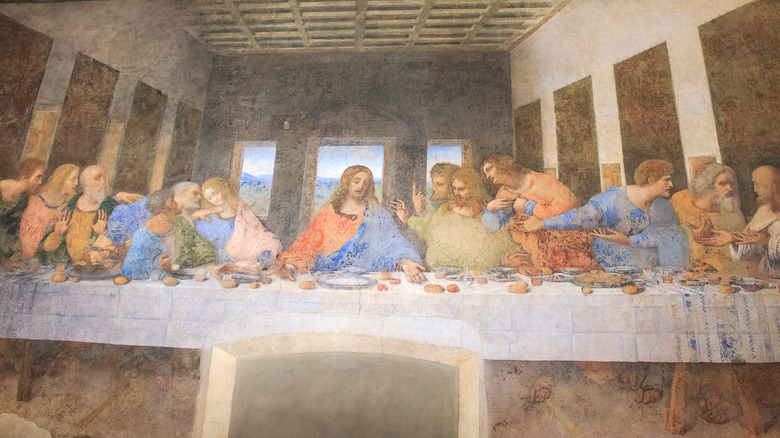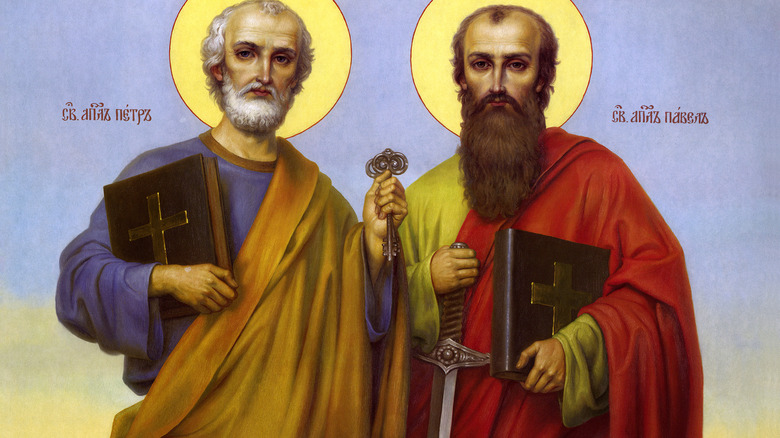Rules Every Apostle Had To Follow In The Bible
It's one of the oldest and most recognized paintings in the world, and it depicts Jesus Christ and 12 other men evenly split on both sides of him — six to his left and six to his right. The work is called "The Last Supper," and it was painted by famed Italian artist Leonardo da Vinci in the late 15th century, per Milan Museum. It shows the last meal they all had together. These men in particular were important followers of Jesus' teachings, and their job as disciples was to spread his good word.
According to Learn Religions, an apostle is someone that Jesus himself chose and nominated as his official representative. He enlisted these men first as disciples and entrusted them to continue speaking his gospel. When Jesus was crucified and later resurrected, these disciples then became apostles — as one can't become an apostle until they've finished their role as a disciple, and when Jesus formally appoints them.
Rules for an apostle
Matthew chapter 10, verses 2 to 4, states who the 12 apostles were. Their names were: Simon (or Peter), Andrew, James, John, Philip, Bartholomew, Thomas, Matthew, James, Alphaeus, Thaddaeus, and Judas Iscariot, per Bible Gateway. And several of these men shared blood relations as brothers. Judas famously betrayed Jesus and took his own life as a result of his guilt. He was replaced by Saint Matthias, per Britannica.
As an apostle, they had several rules they had to follow, and these commands came from Jesus himself. In the Bible, these rules can be found in the Gospel of Luke where it explains the mission Jesus gave them.
The main job of an apostle was to teach to everyone as Jesus taught them, anoint disciples in Jesus' name, cure and heal the sick, compel demonic spirits to leave, and have the power to baptize. On this mission, an apostle had to carry very little with them. In Luke chapter 9, verses 3 to 5, it says that apostles could not carry with them a staff (a rod), food, money, or any additional clothing. Their job was to complete the spreading of his gospel without the essentials one would normally take on a trip. If an apostle were to enter a home during their mission, they had to stay in that home only until they were ready to leave the town. And if an apostle was somehow not met with a welcome mat at someone's home, Jesus advised them to dust their feet upon leaving the town as a sign of protest.

